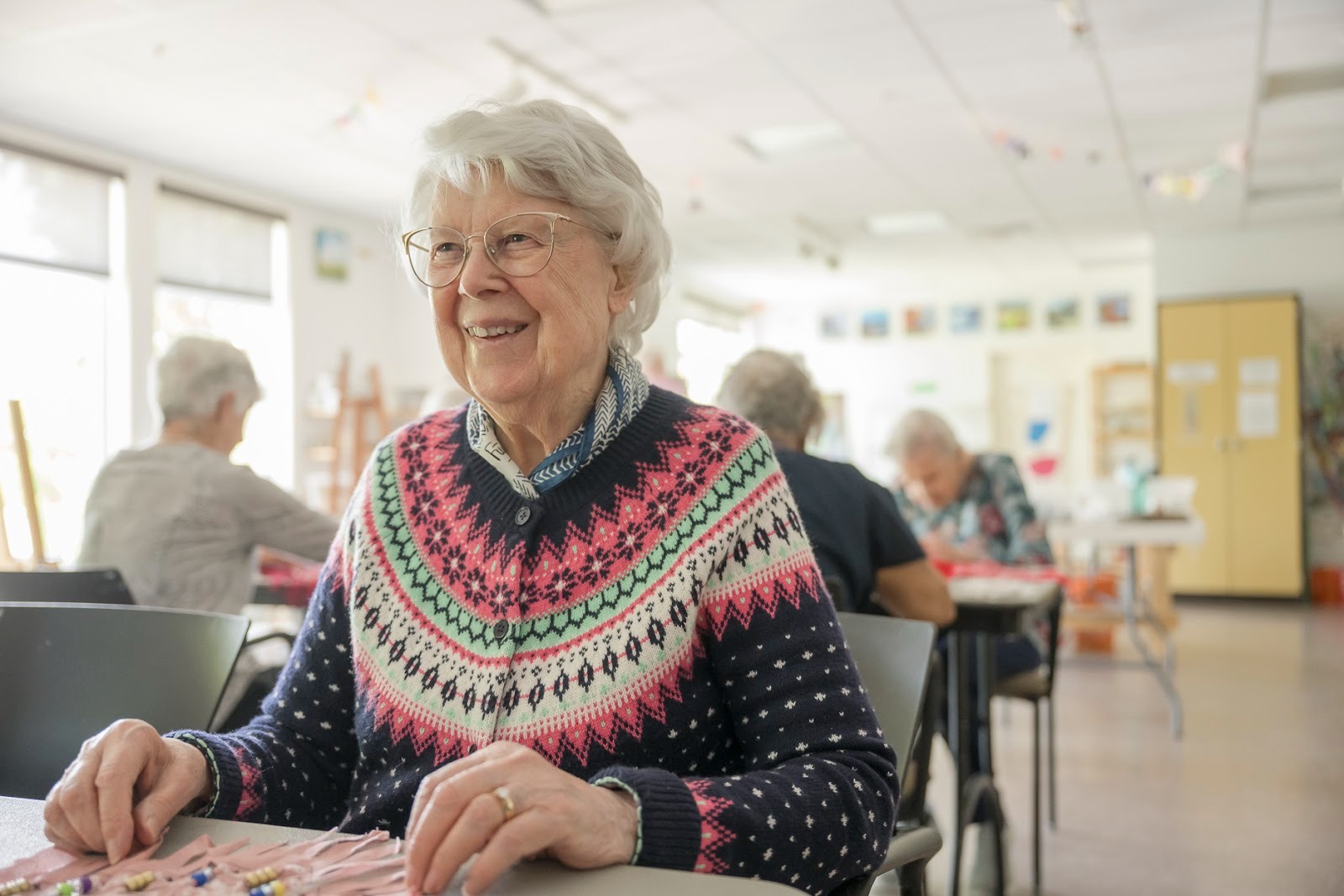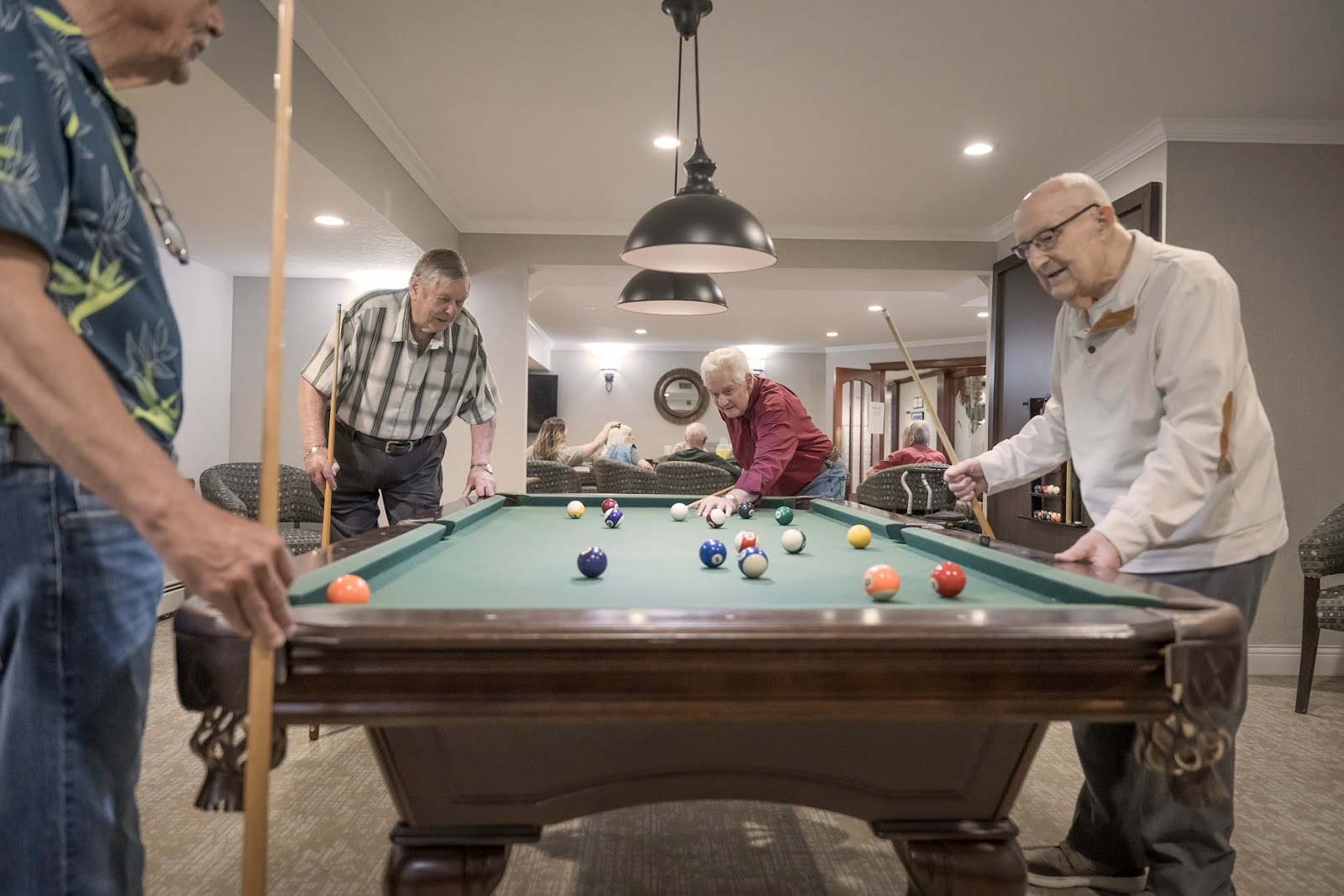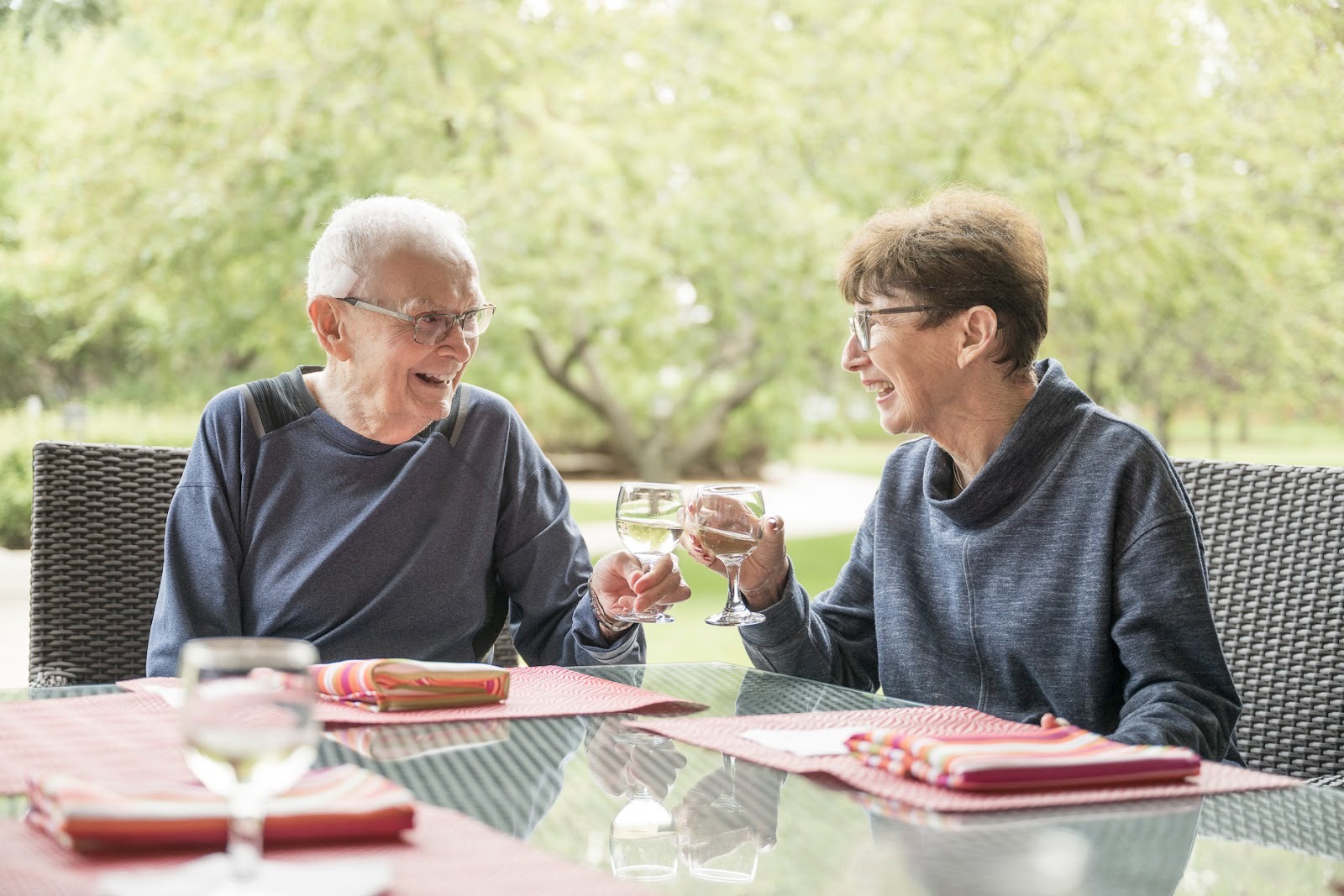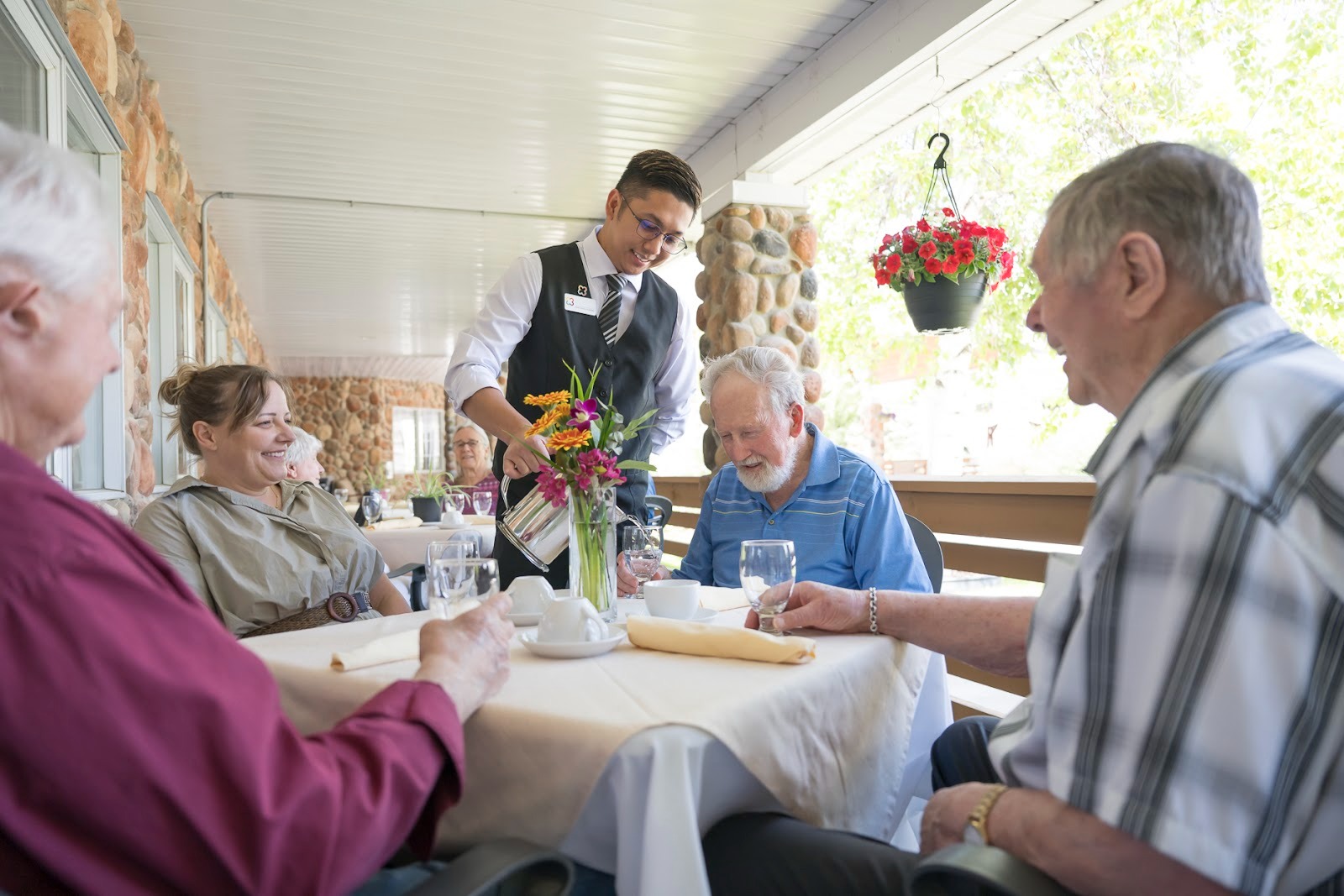Questions families forget to ask (but should) when choosing assisted living
It’s a big step, isn’t it? Deciding whether or not to move someone you love into an assisted living community is tough, and choosing the right one can be even harder.
While most families take the time to research amenities and costs, they often miss asking deeper questions that can make a real difference in the lives of their parents. The right questions go beyond surface-level concerns to help you understand how daily life actually unfolds within the community you’re considering.
We would like to help.
This article will guide you on your journey on how to choose assisted living that’s right for your family. We’re highlighting often-overlooked questions that experienced families wish they had asked from the start. By the end, you'll have a thorough framework for evaluating potential communities and making a decision that serves your family's unique needs.

What exactly does assisted living mean?
Assisted living bridges the gap between independent living and full nursing care. Residents maintain their own private suite while receiving help with daily activities like bathing, dressing, and medication management. The goal is to preserve dignity and autonomy while ensuring safety and support.
Calgary offers a range of senior care options, from luxury communities with resort-style amenities to more affordable settings focused on essential services. Assisted living communities typically provide 24-hour support, emergency response systems, housekeeping services, meals, and structured social activities. Many also offer specialized memory care units and on-site healthcare services.
Understanding the personal, unique needs of your loved one helps narrow down the extensive options available. Factors like location preference, budget considerations , and the level of care required now versus potential future needs will all need to be considered.
Read: How retirement communities near you offer both familiarity and new opportunities.
Assisted living health and wellness questions
What healthcare services are available on-site?
Ask about specific medical services available within the community. Some communities have nurses on staff around the clock, while others rely on visiting healthcare providers. Understanding this difference helps you gauge how medical needs will be addressed day-to-day.
How are emergencies handled, and what is the response time?
Request detailed information about emergency procedures. For example:
- How quickly does staff respond to calls for help?
- What partnerships exist with local hospitals, primary care providers, and other healthcare professionals?
- Are family members notified immediately during medical emergencies?
These details matter tremendously during stressful situations.
Are there personalized care plans and regular assessments?
Quality communities conduct regular assessments to adjust care plans as needs change. Ask: how often do these reviews occur? Who participates in the process? And how are changes communicated to family members? This ongoing evaluation ensures care remains both appropriate and effective.
Download United Active Living’s health and wellness brochure.
Lifestyle and social opportunities in assisted living in Calgary
What activities and programs promote socialization?
Beyond asking "what activities do you offer?" inquire about how programs are designed to match resident interests and abilities. Are activities mandatory or optional? How does the team encourage participation without being pushy?
The best communities create genuine social connections rather than just filling time.

How are residents encouraged to maintain independence?
Ask specific questions about how the community supports resident autonomy. For example:
- Can residents come and go freely?
- Are there opportunities to continue hobbies and interests?
- How does the community adapt when someone's abilities change, while still encouraging independence?
Are family members invited to participate or visit regularly?
Clarify expectations around family participation. Are there opportunities for family members to participate? Can relatives and friends join for meals? What are the visiting hours and policies? Understanding these guidelines is essential to maintaining important family connections.
Read: How “one new thing” in your retirement community in Calgary will enrich your next chapter.

Financial transparency questions for assisted living communities
What is included in monthly fees, and what might incur extra charges?
Request a detailed list of what's included in monthly fees versus additional charges. Services like laundry, transportation, or specialized care often carry extra costs. Ask for examples of recent additional charges other families have encountered.
Are there flexible payment options or financial assistance programs?
Explore whether the community offers payment plans or accepts various forms of financial assistance. Some establishments work with long-term care insurance or veteran benefits. Gaining clarity on these options early prevents financial surprises later.
How does the community handle changes in care needs and potential cost increases?
Ask how fees change when care needs increase. Are there set pricing tiers, or do costs adjust gradually? Understanding this progression helps families budget for long-term care and avoid unexpected financial pressure.
Exploring staff qualifications and community stability
What qualifications and training do staff members have?
Inquire about staff certification requirements and continuing education programs. Are caregivers trained in specialized areas like dementia care or medication management? Regular training updates indicate a commitment to quality care.
What is the staff-to-resident ratio?
Ask about staff-to-resident ratios during different shifts, including nights and weekends. Lower ratios often mean more personalized attention and faster response times. Also, ask about backup staffing procedures during illness or emergencies.
How is staff turnover managed, and how does it affect care quality?
High staff turnover disrupts care relationships and community stability. Ask about average tenure, why staff choose to work there long-term, and how the community maintains care continuity during transitions.
What role does accreditation play?
Accreditation shows a community’s commitment to quality and safety. Independent reviews by bodies like CARF and Accreditation Canada ensure standards in care, service, and continuous improvement are met.
When comparing communities, ask which accrediting body reviews them, how often, and what strengths were noted. Accreditation isn’t a substitute for your own visit, but it offers reassurance that the community is accountable to recognized standards.
Safety and environmental factors in assisted living
What security measures are in place to protect residents?
Beyond basic door locks, ask about security cameras, visitor management systems, and how the community works with individuals experiencing cognitive challenges. It’s important for communities to balance security needs with maintaining a homelike atmosphere and focus on overall wellness.
How is the community designed to accommodate mobility or cognitive challenges?
Tour the community with mobility challenges in mind. Are doorways wide enough for wheelchairs? Are there grab bars and non-slip surfaces? How does the design accommodate vision or hearing impairments? Good design prevents accidents and supports aging in place.
Are there policies regarding visitors, pets, and emergencies?
Clarify policies around guests, pet ownership, and emergency procedures. Can family members have keys or access codes? Are pets welcome, and are there size or breed restrictions? How are families contacted during facility emergencies or evacuations?
How should families approach their final community decision?
To set your mind and heart at ease, plan to visit multiple communities and ask these questions during each tour. Take notes and compare responses directly. Pay attention to how staff answer difficult questions - transparency and honesty matter more than perfect answers.
Schedule visits at different times of day to observe meal service, programming, and evening routines. This gives you a realistic view of daily life rather than a staged presentation. Trust your instincts about the community's atmosphere and how residents seem to feel about living there.
Remember that each person's needs are unique. Tailor your questions to address specific concerns about mobility, social preferences, medical conditions, or family dynamics. The best community for one person may not suit another, even within the same family.
Moving forward with confidence
Asking comprehensive questions up front prevents regret and ensures you or your loved one receives appropriate care in a supportive environment. The time invested in thorough research pays dividends in peace of mind and quality of life.
United Active Living understands that choosing the right assisted living community involves complex decisions affecting entire families. Learn more about United’s assisted living in Calgary and discover how we address the questions that matter most to families like yours.
Find out more about United Active Living’s commitment to senior care.
Frequently asked questions
How much does assisted living typically cost in Calgary?
Calgary senior care options generally range from $2,000 to $8,000, depending on the level of care, location, size of the suite, services, and amenities included. Additional services may incur supplemental charges.
What's the difference between assisted living and nursing homes?
Assisted living focuses on helping with daily activities while preserving independence in private suites. Nursing homes or long term care facilities provide more intensive medical care for complex needs, often with supervision for residents who need 24-hour nursing attention.
How do I know if my parents are ready for assisted living?
Consider assisted living if your loved one struggles with daily activities like bathing, medication management, or meal preparation, or if safety concerns exist at home. Social isolation can also indicate readiness for community living.
Can residents bring their own furniture and belongings?
Most assisted living communities encourage residents to bring familiar furniture, artwork, and keepsakes to personalize their suites, helping them feel comfortable and maintain a sense of home in their new surroundings.
What happens if care needs increase after moving in?
Reputable communities conduct regular assessments and adjust care plans accordingly. Some communities offer different levels of care within the same location, while others may help families transition to more appropriate settings if needed.
For more frequently asked questions about life in a United Active Living community, click here.

%201.svg)
%201.svg)
















